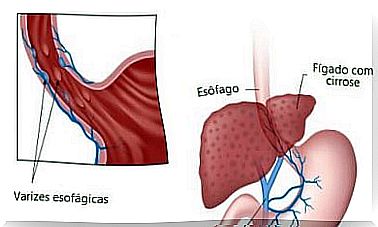Everything You Need To Know About Intermittent Fasting

Fasting has become a popular measure to lose weight, especially among those who have difficulty following a weight-loss diet. However, do you know what the intermittent fasting diet is and how it should be done? We will present some details below.
Intermittent fasting to lose weight
Losing weight can be a daunting task. If you suffer from food anxiety or just can’t resist a succulent dish or a delicious dessert, read on.
What is intermittent fasting?
As the name implies, this diet to lose weight consists of fasting sporadically, that is, the person who follows this diet stops eating for a pre-established period of time.
Let’s take an example to make it clear: Maria decided to try intermittent fasting to lose her extra pounds. For this reason, she decided to fast twice a week for 16 hours, always under medical supervision.
How does this diet work?

According to people who support this diet, every time we eat, we take in more energy than necessary. So our body saves it for later use when needed.
The sugar into which carbohydrates are broken down can only enter cells with the help of insulin, the hormone produced by the pancreas that helps store energy when it’s needed.
When we take in more energy than we use, some of it is converted into fat and distributed throughout the body. When you fast, insulin levels drop (you don’t need to store sugars) and the body starts using stored fat for energy.
The diet’s mode of operation is therefore easy to understand: it is assumed that by interspersing periods of food intake (high insulin) and energy storage with periods of fasting (low insulin), the body burns more fat than when it is in a continuous state of consumption.
Thus, the person who adheres to this diet must fast at pre-established periods that can have a different duration, depending on personal needs (and the willpower of each one).
Types of Intermittent Fasting Diet
This diet can be performed in a number of different ways. However, we want to present below the main models to execute it:
- Fast 12/12: This diet involves eating breakfast and dinner, separating the two meals by 12 hours of fasting. For example, have breakfast at 7 am and dinner at 7 pm.
- Fasting 16/8: the idea here is to fast for 16 hours (consuming fluids, of course) and then eat for 8 hours. In this way, we could establish a fasting period of 21 to 13 hours and a feeding period of 13 to 21 hours.
- Fasting 4/20: The fasting period extends to 20 hours, followed by 4 hours in which food can be consumed.
- Fast 24: The fasting period is, in this case, a whole day. Drinking water is allowed, of course, and fasting is every other day. On break days, caloric intake is normal.
- Fast 48: those who follow this diet should fast for two full days, always maintaining good hydration.
Is fasting healthy?
We fast every day, even if we don’t want to. The definition of fasting is not eating for a certain amount of time, exactly what we do daily while sleeping.
According to different studies, when fasting is controlled within a balanced diet and there are no health problems such as diabetes, it can be beneficial to lose weight and thus reduce cardiovascular risks caused by the accumulation of fat.
However, some experts point out that fasting can cause serious damage to the body in pregnant women, people with diabetes (because fasting can cause hypoglycemia) or other chronic problems.
Its benefits are similar to other diets

In 2018, the German Cancer Research Center (Deutsches Krebsforschungszentrum, DKFZ) carried out a survey called HELENA. In it, researchers tried to establish whether the intermittent fasting diet might actually be beneficial to weight loss and whether it was harmful to health. The conclusions of the study were as follows:
- It is a diet similar to others to lose weight.
- It can especially help those who have trouble maintaining discipline every day of the week.
- The weight loss of those who fasted was similar to the control group that followed a conventional diet.
Fasting could reduce body fat
Another 2016 survey suggested that fasting 12/8 for 8 weeks, in conjunction with exercise sessions, would help improve health markers and reduce body fat in men without causing muscle loss.
It would help to modify the appetite
Experts also studied a group of people with obesity and pre-diabetes to determine whether this diet would be right for them. Fasting was performed so that people ate food for a period of 8 hours a day.
The results showed that after five weeks, patients had decreased appetite and blood pressure, although they had not lost weight.
Risks of Intermittent Fasting

As already mentioned, there are no conclusive results that prove the benefits of intermittent fasting. At the annual meeting of the European Society of Endocrinology, held in 2018 in Barcelona, some possible consequences of fasting on metabolism were suggested:
- Possibility of developing type 2 diabetes: a study with rats observed that, after intermittent fasting, the animals lost weight. However, the accumulation of fat in the abdomen increased, a situation that was shown to be related to the possible development of type 2 diabetes.
- Risk of cancer and cardiovascular disease: Intermittent fasting could increase oxidative stress and the production of free radicals, two situations that, according to current data, would accelerate DNA aging, increasing the risk of cardiovascular disease, cancer and neuronal degeneration.
- Damage to insulin secretion by pancreatic cells.
- High levels of free radicals.
- Signs of Insulin Resistance. At this point, researchers noted that many obese people should be considered insulin resistant before fasting.
If you plan to start the intermittent fasting diet, see your doctor. The professional will know how to guide you and will tell you if this is really a good strategy for you.








